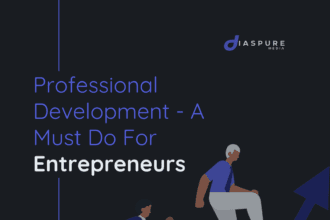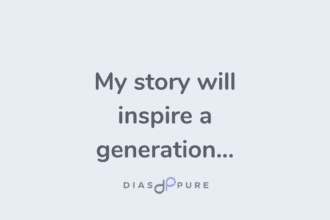Moving to Canada is an exciting adventure but can also be a significant adjustment. From learning how to navigate new systems to understanding cultural norms and finding the right resources to thrive, this toolkit will help you settle in and adjust to life in Canada smoothly.
This guide covers essential resources for housing, employment, community support, financial management, and more, making your transition as seamless as possible.
Finding a place to live
One of the first challenges newcomers face is finding the right place to live. Whether you plan to rent or buy, there are many housing options in Canada, but the process can be different from what you’re used to back home. Below are a few things to consider:
Best areas to move in the city when you’re new to Alberta
Location, location, location
If you will be able to drive shortly after arriving and are financially prepared for vehicle-related expenses, the proximity of your new home to the inner city, or grocery stores and other amenities may not be that much of a concern.
Consider staying close to the city’s core at first
If after moving you won’t be driving for a while, consider living closer to well-populated areas for the first few months or years. These areas often have more public transportation, schools, grocery stores and other shops, parks, and other amenities close by. This can help you drastically reduce your travel costs and travel time while helping you stay more connected to what is happening in your city since most events occur in or near the core of major cities.
Remember, with all cities, the closer to the downtown core, the higher the rental costs, as well as certain safety concerns. Be sure to do your own research and consider using tools like the Crime Severity Index (CSI) if this is something you’re curious about.
Key housing resources
Renting
Depending on your personal goals and preferences, renting might be a good option. Many newcomers choose to rent for the first few months while they learn more about their new city or province.
- Rental Listings: Websites like Rentals.ca, Rentfaster.ca, PadMapper.com, and Kijiji.ca are popular for finding rental apartments or houses in Alberta’s major cities like Calgary and Edmonton. These websites share details about the surrounding community for each listing, transportation, and amenities near a listing. Point2homes.com is great for those who need to know a listing’s WalkScore.
- Settlement Agencies: Many cities have settlement agencies that help newcomers find affordable housing and provide advice on tenant rights and obligations. Some agencies include Immigrant Services Calgary the Center for Newcomers in Calgary and the Edmonton Immigrant Services Association or the Africa Centre. Take a look at the Immigrant Services Calgary’s comprehensive newcomer handbook.
Know your rights as a tenant in Alberta – Alberta Human Rights Commission
Know the laws for landlords and tenants in Alberta – Landlord and Tenant CPLEA
Tip:
- When renting, always ask for a lease agreement and read it thoroughly to understand your rights and responsibilities as a tenant.
Purchasing a home
Building or purchasing a home is an exciting and empowering endeavor for all and it’s important to make well-informed decisions when doing so. There are many resources and opportunities available to Canadians so be sure to seek them out. Some opportunities include those listed below:
If you require a mortgage to purchase your home, a down payment is necessary to do so. If a home purchase is a few months or years away for you, Canada offers many savings vehicles you can use to your advantage.
- TFSA – The Canadian government allows us to save or invest a specified amount each year where the growth will be tax-free. This option is available with most financial institutions and if you choose, can be used to save for a down payment.
- FHSA – The First Home Savings Account empowers eligible Canadians to save up to $40,000 tax-free to buy a home. It combines the tax-free growth benefits of a TFSA and the tax deductions of an RRSP.
- RRSP – Registered Retirement Savings Accounts were designed to help Canadians save for retirement. They offer tax deductions and tax-free savings until you withdraw the funds.
- HBP – The Home Buyer’s Plan empowers eligible Canadians to withdraw a pre-determined amount from their RRSP tax-free to put towards the purchase of their first home.
Use this helpful guide from the CMHC to find out how financially ready you are to purchase a home
Step-by-step home buying toolkit from Canada Mortgage and Housing Corporation – CMHC
Find an abundance of resources and tools on housing for newcomers to Canada – CMHC
Have a conversation with your financial institution and/or financial advisor to learn what options are available to you. And remember, in all that you do, do your own research with financial products.
Low income
For persons with low to moderate incomes, you may find resources provided by your local government beneficial:
- City of Calgary
- City of Edmonton
- Province of Alberta
- Dial “211” anywhere in Alberta to be connected to various Government of Alberta programs and services that are available to anyone.
- Tip – When using search engines like Google or Bing to find resources for “low-income” persons, use search terms like “low-income housing in Edmonton”, or “low-income housing in Calgary”. Replace the city name with your preferred location. You can also try search terms like “affordable housing”.
Remember, being considered “low-income” doesn’t have to be long-term. The Government of Canada offers many resources to support your savings goals as mentioned above and there are many organizations that offer workshops to help you fill knowledge gaps and learn new ways to improve your situation. There are also plenty of free resources online, so be sure to leverage these opportunities for growth and you’re guaranteed to be pleased with the results you achieve from your self-development journey.
Tips:
- Consider having conversations with different real estate agents, many have great insights on the best and worst areas to live in a city and why.
- Consider joining groups dedicated to real estate owners to build relationships and support your learning journey.
Employment resources for newcomers
Finding employment is often a top priority for newcomers. Canada’s job market may be different from what you’re accustomed to, but with the right tools, you can successfully acquire a job that aligns with your skills and experience.
Have you applied for your SIN card? If not ensure that’s done before beginning your job search as SIN cards are required to work in Canada. You can find instructions to apply for your SIN on the Government of Canada website.
Key Resources for Employment:
- Job Search Websites: Popular job search engines are excellent places to start your job hunt.
- Settlement Agencies: Many immigrant settlement agencies offer employment services, including resume writing workshops, interview preparation, and job placement assistance.
- Recognition of Credentials: If your profession is regulated in Canada (such as healthcare or engineering), you may need to have your credentials evaluated. Look into Alberta’s International Qualifications Assessment Service (IQAS) or this Government of Canada resource to begin the process.
Tip:
- Consider joining networking groups or attending career fairs for newcomers. These events can help you connect with potential employers and other newcomers who have gone through similar experiences.
Healthcare and insurance
As a newcomer, accessing healthcare is vital. Canada offers a public healthcare system, but there are important steps to take to ensure your family is covered.
Key Resources for Healthcare:
- Alberta Health Care Insurance Plan (AHCIP) – Register for AHCIP as soon as you arrive. This gives you access to free medical care, such as doctor visits and some emergency services.
- Walk-in Clinics – While searching for a family doctor, consider walk-in clinics for non-emergency healthcare.
- Find a Medical Doctor – Use online tools like directories for doctors to find clinics and Drs in Alberta.
- Private Insurance – If you need services not covered by AHCIP, like dental or prescription medication, look into private health insurance plans from companies like Blue Cross.
- Workshops – Use online tools to find workshops and services.
- Advice & Information – Dial 811 for health advice or information – Health Link
Tip:
- Carry your health insurance card with you as it’s required for medical appointments.
Education and childcare
According to the Education Act, if you live in Canada and have children who live in Alberta, starting at 6 years old, education is mandatory. Regardless of mandate, ensuring your children are enrolled in school and have access to great childcare is crucial to their well-being and your peace of mind.
Keep in mind that for public schools, your child’s designated school is determined based on your address. To ensure satisfaction with the designated school, many parents choose to find a school they like and then seek residences nearby.
Key resources for education:
- Public School Enrollment: In Alberta, public school is free for children from kindergarten to grade 12. Parents can choose to register their child at the designated school for their area or contact their preferred school board for details on school catchment areas.
- Calgary Board of Education
- Edmonton Public Schools
- Catholic School Board
- Find more school boards – Alberta School Boards & Associations
Find school rankings for elementary and secondary schools in Alberta, Ontario, BC, and Quebec
- Post-Secondary Education: For those pursuing higher education, colleges, universities, and polytechnic institutes offer various programs for newcomers
- Calgary
- University of Calgary
- SAIT – Southern Alberta Institute of Technology
- Mount Royal University
- Bow Valley College
- Edmonton
- University of Alberta
- NAIT – Northern Alberta Institute of Technology
- Grant MacEwan University
- Norquest College
- Calgary
Childcare:
Licensed childcare services offered in Alberta include day homes, daycares, or after-school care centers.
What is the difference:
- Dayhomes operate from a licensed individual’s approved home and can care for up to 6 children at a time, not including their own.
- Daycares or child care centers are businesses established solely to provide care for children of various ages usually while their parents are at work.
- After-school care programs are offered by some daycare centers and other private establishments for school-aged children up to 12 or 13 years old
- Some community centers and settlement agencies often provide affordable after-school programs and summer camps.
Do you have a low income? Alberta helps eligible parents cover a portion of their childcare expenses by offering subsidized childcare options. Certain requirements must be met to qualify.
Ready to find a provider? Visit Alberta Childcare Lookup to find nearby licensed daycare providers.
Tip:
- Apply early for both school and childcare as spaces can fill up quickly, especially in urban areas.
- Understanding the way schools are described in Alberta:
- Basic School – Kindergarten, Elementary, Pre-school
- Primary School – Junior High
- Secondary School – High School
Managing your finances
Managing finances in Canada (or anywhere for that matter) includes creating and sticking to a budget, setting up a bank account, learning about credit, and understanding the cost of living.
Key resources for financial management:
- Banking Services – Bank accounts are great money management tools for everyone, and opening one may provide access to other financial services and wealth-building tools. Major banks like RBC, TD Bank, Scotiabank, and CIBC sometimes offer newcomer packages with various benefits.
- Building Credit – In Canada, your credit score is important for renting, buying a home, or securing loans, and in some cases employment. Building good credit can include practicing good financial habits like paying bills on time and using secured credit cards responsibly. This contributes to building credit history and credit score which can be monitored with Equifax or TransUnion. Some banks also integrate this into their platforms allowing users to monitor their credit from within their bank account.
- Cost of Living – It’s important to budget for the costs of living in your new city. Calgary and Edmonton offer a relatively affordable cost of living compared to other major Canadian cities, but expenses like rent / mortgage, utilities (electricity, gas, water), taxes & insurance (in some cases), groceries, and transportation should always be considered.
Find opportunities for free personal finance advice and courses with Money Mentors. Some topics include budgeting, credit/debt, saving, planning for retirement, and more.
Tip:
- Look into financial literacy programs through local libraries or settlement agencies. These programs teach newcomers how to budget, save, and manage credit in Canada.
Transportation and Getting Around
Learning how to get around in Alberta is key to adjusting to your new life. Whether you rely on public transit or plan to drive, knowing your options can make your daily commute so much easier.
Key Resources for Transportation:
- Public Transit: Both Calgary and Edmonton have extensive public transit systems. Visit Calgary Transit or Edmonton Transit System (ETS) for route maps, schedules, and fare information.
- Driver’s License: If you prefer to drive, you’ll need to exchange your out of country driver’s license for an Alberta driver’s license. Various Alberta Registries can provide information on how to transfer your license or apply for a new one.
- Car Insurance: In Alberta, car insurance is mandatory, so be sure to compare rates from various providers like TD Insurance, Aviva Canada or other providors.
Tip:
- Use apps like Google Maps or Transit App to help navigate public transportation efficiently.
Community and Cultural Support
Moving to a new country can sometimes feel isolating, but building a community around you can make all the difference.
Key Resources for Community Support:
- Cultural Organizations: Local associations, host cultural events, provide networking opportunities, and offer a sense of belonging for newcomers.
- Settlement Services: Organizations like Action for Healthy Communities and Catholic Social Services offer programs that help newcomers settle in, such as language classes, legal support, and community integration.
- Religious Institutions: If faith is important to your family, finding a local place of worship may help you connect with others and build a supportive community.
Tip:
- Joining community groups on platforms like Facebook may help you meet fellow newcomers and discover more about living in Alberta.
Maintaining Health and Wellness
Your physical and mental well-being are essential as you adjust to life in Alberta. Here are some resources to help you stay healthy.
Key Resources for Health and Wellness:
- Public Health Programs: Alberta offers various wellness programs, such as smoking cessation, nutrition, and mental health support. Check with Alberta Health Services for programs in your area.
- Gyms and Recreational Centers: Staying active is a great way to manage stress. Calgary and Edmonton have numerous recreational centers offering affordable memberships, group fitness classes, and sports leagues.
- Mental Health Support: Moving to a new country can be stressful. Consider finding mental health services by contacting Health Link (811) and 211 Alberta, which can connect you to counselors and crisis intervention services.
- When you can, consider traveling around Alberta to discover the beautiful sights, and experiences available within the province.
Tip:
- Always take time for self-care, whether it’s through exercise, meditation, or connecting with friends and family.
Final thoughts: thriving in your new life as an Albertan
Moving to Canada is a life-changing experience, and while the process of adjusting can take time, having the right resources at your fingertips can make it less challenging. Though everything you need to know is not included here, by using this toolkit, you’ll be better prepared to navigate housing and employment to healthcare and community support.
With patience, persistence, and a strong support system, you’ll soon feel right at home in your new province.
Have a Complaint About a Business?
Know that as a consumer, you’re not obligated to make any purchases or enter any agreements with any person or business if you do not want to, it is your duty to shop around and do your own research to ensure you know what is available to you in the market and make the best decisions for you. If you have concerns about your experience as a consumer consider reading about filing a consumer complaint on the Government of Alberta’s website for some steps you can take.
Best wishes and welcome to Alberta!
Remember, in all that you do we wish you the best, however, the information provided on this site is intended for general informational purposes only and should not be considered professional advice. be sure to seek professional legal and financial counsel to cater to your specific situation. Learn more in our disclaimer policy.




